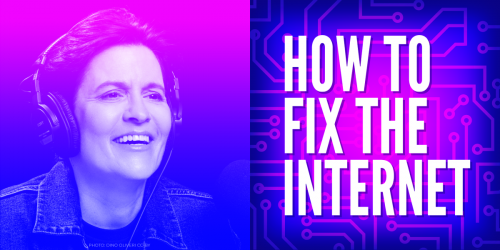Push to once again allow abstract patents is misguided
Right now, the patent lobby—in the form of the Intellectual Property Owners Association and the American Intellectual Property Law Association—is demanding “stronger” patent laws. They want to undo Alice v. CLS Bank and return us to a world where “do it on a computer” ideas are eligible for a patent. This would help lawyers file more patent applications and patent litigation. But there’s no evidence that such laws would benefit the public or innovation at all.
One of the primary justifications we hear for why patents are social goods is that they encourage innovation. Specifically, the argument goes, patents incentivize companies and individuals to invest in costly research and development that they would not otherwise invest in because they know they will be able to later charge supracompetitive prices and recoup the costs of that development.
Those who want "stronger" patents (i.e. patents that are easier to get and/or harder to invalidate) often use this rationale to justify changing patent laws to make patents more enforceable. For example, a former Judge on the Court of Appeals for the Federal Circuit recently suggested that "America is in danger because we have strangled our innovation system" by making it easier to challenge patents and show they never should have been granted. As another example, the Chief Patent Counsel at IBM argued that "The U.S. leads the software industry, but reductions in U.S. innovation prompted by uncertain patent eligibility criteria threaten our leadership" because "Patents promote innovation."
These arguments all presume that "stronger" patents mean more research and development dollars and thus more innovation. They also presume that if the U.S. doesn't provide "stronger" patents, innovation will go elsewhere.
But reality is much more complex. As one recent paper put it: "there is little evidence that stronger patent laws result in increases in [research and development] investments," at least if the yardstick is patent filings. Indeed, "we still have essentially no credible empirical evidence on the seemingly simple question of whether stronger patent rights – either longer patent terms or broader patent rights – encourage research investments into developing new technologies."
There are good reasons to think "stronger" patents do not actually spur innovation. Patents are a double-edged sword. Although they may provide some incentive to innovate (even that premise is unclear), they also create barriers to more innovation. Patents work to prevent the development of follow-on innovation until that patent expires, delaying innovation that would have occurred, but is prevented by the grant of an artificial, government-backed monopoly.
The problem of patents impeding future innovation is exacerbated in software, where the life cycle is relatively short and innovation tends to move quickly. When a patent lasts for 20 years, software patents—especially broad and abstract software patents—have the potential to significantly delay the introduction of new innovations to the market.
Despite no "credible empirical evidence" that recent changes to patent laws, including the limits on patentable subject matter reaffirmed by the U.S. Supreme Court in Alice, have done any harm to the innovation economy or innovation generally, some patent owners have been lobbying Congress legislate the case away. But doing so would allow patents on abstract ideas, and risks exacerbating the deadweight loss caused by too much patenting. The proposals are not minor changes. For example, if enacted they would mean that anything is patentable, so long as it is doesn't "exist solely in the human mind," i.e. "do it on a computer." Absent any evidence that this would mean more innovation, the recent reform proposals seem like little more than a bid by lawyers to create work for themselves.
Those rushing to ratchet up patent rights are doing so with little to no empirical basis that any such change is necessary, and it may actually end up harming the innovation economy. Congress should think twice before changing patent law so as to make patents even "stronger."











